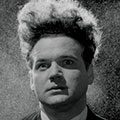Terry Gross was on the Longform podcast this week, and she discussed the ground rules she lays down for her subjects before their interview:
- This isn’t live and isn’t airing today, so avoid saying “yesterday”, “today”, “last week”, etc. Go for absolute dates and times if you can.
- If you get half way through an answer and misspeak or think of a better way to get across what you mean, stop yourself and start the answer again. Just start with a full sentence for the purposes of editing.
- If I get too personal, stop me and we can move on to something else.
- If I get a fact wrong, feel free to interrupt and correct me. I can then fix the mistake and it won’t go to air.
She says that these ground rules aid in making the guest comfortable and alleviates some of the pressure they might feel, especially if they’re able to take do-overs.
Equally, it makes clear that the guest has no control over the edit or what happens to the audio after the interview is over.
